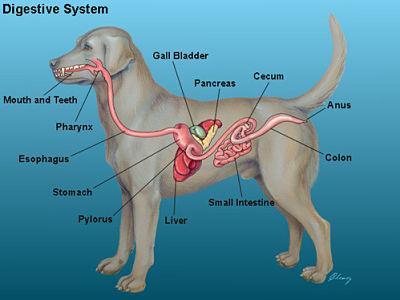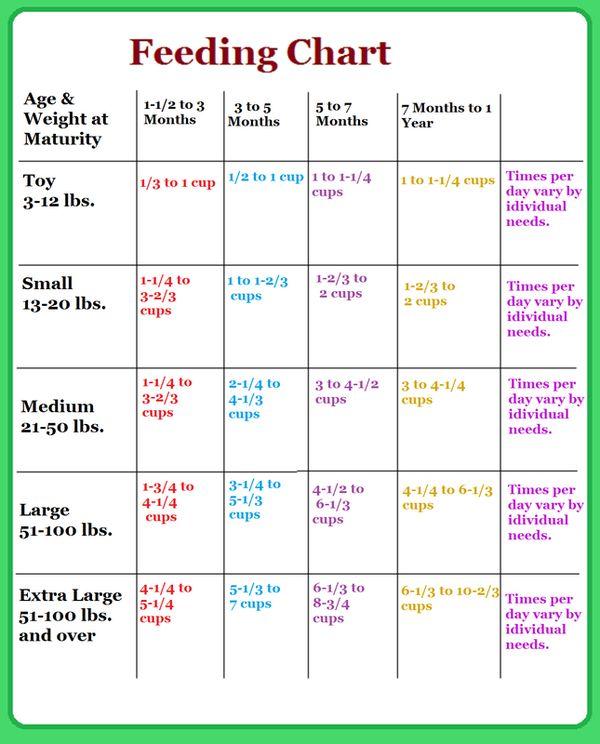Welcoming a dog into your life is like opening a door to endless joy, wagging tails, and unconditional love. Yet, with all the happiness they bring, ensuring their well-being becomes a top priority. Just like humans, dogs can experience digestive issues that affect their health and happiness. If you’ve noticed your furry friend experiencing occasional stomach upsets or discomfort, you’re not alone. Many pet owners are seeking natural ways to enhance their dog’s digestive health, promoting not only comfort but also overall vitality. In this guide, we’ll explore gentle, effective strategies to naturally improve your dog’s digestion, helping you to nurture a healthier, happier companion. Whether you’re dealing with a specific digestive concern or simply looking to optimize your dog’s diet, these insights will empower you to make informed, compassionate choices for your beloved pet.
Understanding Your Dogs Digestive System
Your furry friend’s digestive health is pivotal to their overall well-being. By gaining a deeper understanding of how their system works, you can help ensure they enjoy a happy and healthy life. At the core, your dog’s digestive system is responsible for breaking down food, absorbing nutrients, and expelling waste. Any disruptions in this process can lead to discomfort and health issues. Fortunately, there are natural ways to support and enhance their digestion.
Consider incorporating the following into your dog’s routine:
- Balanced Diet: Opt for high-quality dog food that is rich in fiber and free from artificial additives. This will ensure your pet receives all the essential nutrients without unnecessary fillers.
- Probiotics: These beneficial bacteria can help maintain a healthy gut flora, reducing the risk of digestive issues.
- Hydration: Always provide access to fresh water, as hydration is key to preventing constipation and supporting digestion.
- Regular Exercise: Encourage daily activity to help stimulate the digestive tract and keep everything moving smoothly.

Incorporating Probiotics and Prebiotics for Gut Health
Enhancing your dog’s digestive health can be as simple as incorporating probiotics and prebiotics into their diet. Probiotics are live beneficial bacteria that support a balanced gut microbiome, while prebiotics are non-digestible fibers that nourish these good bacteria. Together, they create a harmonious environment in your dog’s digestive system, promoting better nutrient absorption and a robust immune response.
- Probiotic Sources: Consider introducing plain, unsweetened yogurt or kefir to your dog’s meals. These are rich in live cultures that can aid in maintaining a healthy gut flora.
- Prebiotic Options: Foods like chicory root, bananas, and asparagus can be excellent sources of prebiotics. You might also explore specialized dog foods that include prebiotic fibers.
- Supplements: If you’re looking for a convenient option, probiotic and prebiotic supplements designed specifically for dogs can ensure they get the necessary support without dietary changes.
By integrating these natural elements into your dog’s diet, you’re not just improving their digestion; you’re also fostering a happier, healthier pet. Remember to introduce any new foods or supplements gradually and consult with your veterinarian to tailor the best approach for your furry friend’s unique needs.
Choosing the Right Natural Foods for Better Digestion
When it comes to supporting your dog’s digestive health, choosing the right natural foods can make a significant difference. A balanced diet with high-quality ingredients not only keeps your furry friend happy but also ensures their digestive system functions smoothly. Lean proteins such as chicken or turkey are excellent choices, providing essential amino acids without putting undue stress on the digestive tract. Additionally, incorporating fiber-rich vegetables like carrots, pumpkin, and sweet potatoes can help regulate bowel movements and promote a healthy gut environment.
- Probiotics: These beneficial bacteria can be found in foods like yogurt and kefir. They help maintain a healthy balance of gut flora.
- Digestive Enzymes: Adding these to your dog’s diet can aid in breaking down food, making nutrients more accessible.
- Bone Broth: Rich in nutrients and easy to digest, it supports gut health and hydration.
Remember, every dog is unique, so it may take some experimentation to find the perfect mix of natural foods that works best for your pet. Always introduce new foods gradually and consult with your veterinarian to ensure your dog’s dietary needs are met.

Creating a Consistent Feeding Routine for Optimal Digestion
Establishing a consistent feeding routine is key to enhancing your dog’s digestive health. By providing meals at the same times each day, you create a sense of stability and predictability for your furry friend. This not only helps regulate their digestive system but also aids in maintaining a healthy weight. Here are some steps to consider:
- Set Specific Meal Times: Choose two or three times a day that work for your schedule and stick to them. Regular meal times help synchronize your dog’s internal clock, improving digestion.
- Portion Control: Measure your dog’s food to ensure they’re getting the right amount. Overfeeding can lead to obesity and digestive issues, while underfeeding can cause nutritional deficiencies.
- Choose Quality Ingredients: Opt for high-quality dog food that lists whole proteins and wholesome grains or vegetables as the main ingredients. Avoid fillers and artificial additives.
Implementing these practices can significantly contribute to a happier, healthier dog with a well-functioning digestive system. Consistency is not just comforting for your pet, but it’s also a cornerstone of their overall health.

